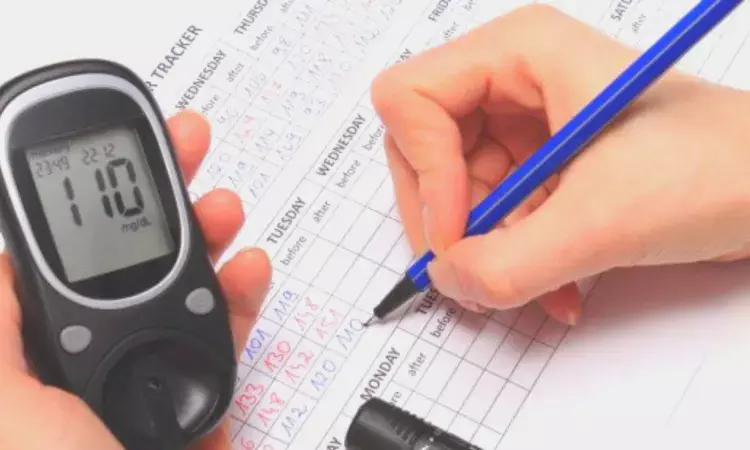- Home
- Medical news & Guidelines
- Anesthesiology
- Cardiology and CTVS
- Critical Care
- Dentistry
- Dermatology
- Diabetes and Endocrinology
- ENT
- Gastroenterology
- Medicine
- Nephrology
- Neurology
- Obstretics-Gynaecology
- Oncology
- Ophthalmology
- Orthopaedics
- Pediatrics-Neonatology
- Psychiatry
- Pulmonology
- Radiology
- Surgery
- Urology
- Laboratory Medicine
- Diet
- Nursing
- Paramedical
- Physiotherapy
- Health news
- Fact Check
- Bone Health Fact Check
- Brain Health Fact Check
- Cancer Related Fact Check
- Child Care Fact Check
- Dental and oral health fact check
- Diabetes and metabolic health fact check
- Diet and Nutrition Fact Check
- Eye and ENT Care Fact Check
- Fitness fact check
- Gut health fact check
- Heart health fact check
- Kidney health fact check
- Medical education fact check
- Men's health fact check
- Respiratory fact check
- Skin and hair care fact check
- Vaccine and Immunization fact check
- Women's health fact check
- AYUSH
- State News
- Andaman and Nicobar Islands
- Andhra Pradesh
- Arunachal Pradesh
- Assam
- Bihar
- Chandigarh
- Chattisgarh
- Dadra and Nagar Haveli
- Daman and Diu
- Delhi
- Goa
- Gujarat
- Haryana
- Himachal Pradesh
- Jammu & Kashmir
- Jharkhand
- Karnataka
- Kerala
- Ladakh
- Lakshadweep
- Madhya Pradesh
- Maharashtra
- Manipur
- Meghalaya
- Mizoram
- Nagaland
- Odisha
- Puducherry
- Punjab
- Rajasthan
- Sikkim
- Tamil Nadu
- Telangana
- Tripura
- Uttar Pradesh
- Uttrakhand
- West Bengal
- Medical Education
- Industry
Optimal blood glucose significantly associated with lower mortality in critically ill patients with cardiogenic shock: Study

A recent study explored the optimal blood glucose (BG) levels that are crucial for patients suffering from cardiogenic shock. This study was published in the European Journal of Medical Research which highlights the intricate balance of BG levels and its impact on patient prognosis.
This study examined data from over 2000 patients with cardiogenic shock from the renowned Medical Information Mart for Intensive Care (MIMIC) IV database. The team led by Ce Sun identified a critical range of time-weighted average BG (TWA-BG) levels by meticulously analyzing BG records and corresponding timestamps.
The findings unveiled a clear-cut threshold, where patients fared best when their TWA-BG levels ranged between 104–138 mg/dl. Also, deviations from this range proved detrimental. The patients with TWA-BG levels lower than 104 mg/dl or above 138 mg/dl faced significantly increased risks of adverse outcomes. The outcomes of the study underlines the importance of maintaining optimal blood glucose levels in the critical care setting. It serves as an important guideline for healthcare practitioners in managing patients with cardiogenic shock.
28-day mortality was the primary outcome of the study which demonstrated a significant contrast between patients within the optimal TWA-BG range and the individuals outside it. The patients with suboptimal TWA-BG levels underwent substantially increased mortality rates within the ICU and also during hospitalization.
Further analysis including sensitivity and subgroup assessments reinforced the robustness of these findings by highlighting the significance of the identified threshold. The major suggestion of this study is to adhere to optimal BG levels that could significantly improve the patient outcomes and enhance overall ICU care.
Source:
Sun, C., Zhou, J.-H., Huang, Y.-L., Ning, Y.-L., & Xu, X.-H. (2024). The optimal blood glucose is significantly associated with lower mortality in critically ill patients with cardiogenic shock: an analysis revealed with time series blood glucose records. In European Journal of Medical Research (Vol. 29, Issue 1). Springer Science and Business Media LLC. https://doi.org/10.1186/s40001-024-01724-8
Neuroscience Masters graduate
Jacinthlyn Sylvia, a Neuroscience Master's graduate from Chennai has worked extensively in deciphering the neurobiology of cognition and motor control in aging. She also has spread-out exposure to Neurosurgery from her Bachelor’s. She is currently involved in active Neuro-Oncology research. She is an upcoming neuroscientist with a fiery passion for writing. Her news cover at Medical Dialogues feature recent discoveries and updates from the healthcare and biomedical research fields. She can be reached at editorial@medicaldialogues.in
Dr Kamal Kant Kohli-MBBS, DTCD- a chest specialist with more than 30 years of practice and a flair for writing clinical articles, Dr Kamal Kant Kohli joined Medical Dialogues as a Chief Editor of Medical News. Besides writing articles, as an editor, he proofreads and verifies all the medical content published on Medical Dialogues including those coming from journals, studies,medical conferences,guidelines etc. Email: drkohli@medicaldialogues.in. Contact no. 011-43720751


